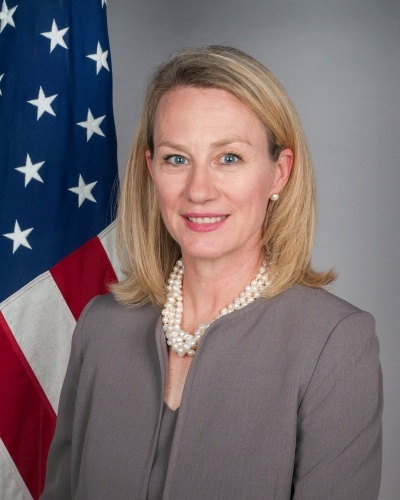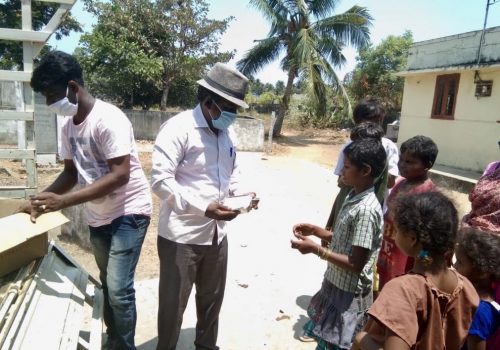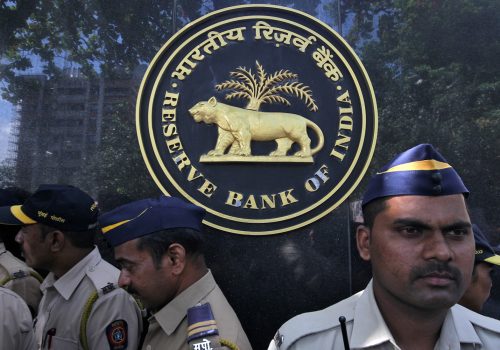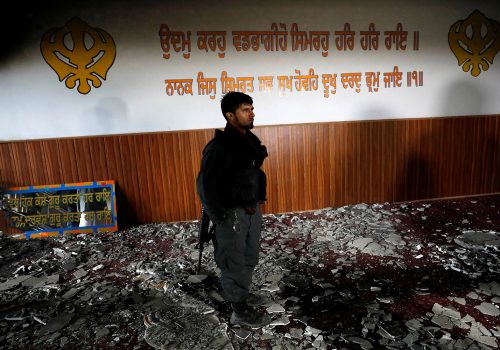As the global community continues to grapple with the coronavirus (COVID-19), the Atlantic Council is open for business. Our business, meetings, and events, however, are occurring virtually. For more information, please read an update from our President and CEO.
Read the US Department of State full transcript here.

On Wednesday, May 20, the Atlantic Council is proud to host Ambassador Alice Wells, Principal Deputy Assistant Secretary of State for South and Central Asian Affairs, for a public webinar to discuss US priorities in India and the Indo-Pacific. Retiring at the end of May after an accomplished diplomatic career, Ambassador Wells will review and reflect on the successes of US policy in South Asia and the Indo-Pacific as well as challenges that lie ahead. The discussion will be moderated by Ambassador Richard Verma, former Ambassador of the United States to India and current Vice Chair at The Asia Group.
This live virtual discussion will be held via Zoom on Wednesday, May 20 from 2:00 to 3:00 pm EST. Instructions to join the meeting will be emailed to you upon registration.
Featuring
Ambassador Alice Wells
Principal Deputy Assistant Secretary of State for South and Central Asian Affairs
US Department of State
Ambassador Richard Verma (moderating)
Vice Chair & Partner
The Asia Group
Opening remarks
Frederick Kempe
President and CEO
Atlantic Council
Event recap
On May 20, 2020, the South Asia Center hosted Ambassador Alice Wells, Principal Deputy Assistant Secretary of State for South and Central Asian Affairs, and Ambassador Richard Verma, Vice Chair & Partner at The Asia Group and former US Ambassador to India, for a conversation on India and the Indo-Pacific. The session began with an introduction by Frederick Kempe, President and CEO of the Atlantic Council. In his introductory remarks, Mr Kempe described Ambassador Wells and Ambassador Verma as two of the most qualified diplomats in their fields and thanked them for joining the conversation. He also highlighted Ambassador Wells’ distinguished service as a Diplomat as she approaches her retirement from a 31-year career at the State Department. Mr Kempe then invited the Ambassador to deliver her initial remarks.
Ambassador Wells began by taking a historical look at the US-India relationship, commending the progress that the two countries have made in strengthening bilateral ties and creating an aligned vision for a prosperous and secure Indo-Pacific. She also emphasized that India’s growth has contributed to an environment in Asia that serves the United States’ Indo-Pacific strategy. Ambassador Wells praised the personal rapport between President Trump and Prime Minister Modi which has helped in strengthening their strategic partnership and noted the vital role the Quadrilateral Security Dialogue (QUAD) has played in coordinating the region’s COVID-19 response.
Ambassador Wells went on to highlight India’s work with the European Union and the United States in ensuring a transparent election and power transition in the Maldives, supporting a strategic reorientation of its foreign policy. She noted India’s critical role as a partner in advancing peace in other countries such as Afghanistan, stating that the United States continues to encourage practical steps to reduce tensions and press Pakistan to take steps to dismantle terrorist groups.
The Ambassador touched on military and defense cooperation, which continue to be a bright spot in the US-India bilateral relationship. She endorsed the Trump administration’s concerted policy change towards India by offering advanced defense technology to support India’s readiness in the Indian Ocean. Looking ahead, she expressed confidence in the growing military and defense cooperation regarding 21st century threats such as artificial intelligence and quantum computing. On the topic of human rights and religious freedom in India, Ambassador Wells stated that, because allies are able have candid conversations about difficult topics, the US continues to urge India to remain true to its core democratic values.
Ambassador Wells highlighted that the rapid spread of COVID-19 has led to legitimate questions on transparency, accountability, and the role of global institutions. She argued that the problem escalated because China’s efforts to evade responsibility and spread disinformation. The Ambassador reiterated that Washington has a high degree of convergence with New Delhi on its COVID-19 response and has continued to successfully collaborate on sharing best health practices and vaccine research.
In conclusion, she urged India to improve its business environment for companies that are seeking to diversify supply chains and take a market friendly approach. Ambassador Wells argued that finalizing a trade deal with the United States is absolutely crucial as India approaches a major economic slowdown. She thanked the Bureau of South and Central Asian Affairs for their work and stated her view that, in the post-COVID world, the US-India relationship will remain relevant, resilient, and ready to meet future challenges.
Ambassador Verma thanked Ambassador Wells for her insightful remarks and for her service to the United States. The question and answer session began with Ambassador Verma asking Ambassador Wells about the practical challenges she faced having India and Pakistan under one bureau. Ambassador Wells replied by saying that the bureau is guided by strategies enabling it to engage with each country on its own terms and at the same time remaining aware of cross-cutting issues in the region.
Ambassador Verma then asked about the status of the peace deal in Afghanistan. Ambassador Wells emphasized that India plays an important role in Afghanistan and maintains strong diplomatic and political ties with Afghan leadership. She argued that India’s role in the peace process is essential and condemned the Taliban’s violence, warning that the answer is not to stop or move backwards but to continue pushing them towards the negotiating table.
Asked about India-China border tensions, Ambassador Wells argued that such tactics are part of Beijing’s strategy to constantly disrupt the status quo on the border and in the South China sea. She believes that China’s aggressions are far more than simple rhetoric, and that we can learn from India’s experience by working towards a world order that respects sovereignty, territorial integrity, and strong international trade.
Lastly, Ambassador Wells was asked by a member of the audience about her highest accomplishment while in public service and what advice she might offer to an aspiring diplomat. She suggested that young diplomats study the geopolitics of China, continue to prioritize people-to-people diplomacy, and resist the temptation to militarize international relations when difficult issues take the stage. The Ambassador concluded by expressing optimism regarding the current and future trajectory of US-India relations. Ambassador Verma thanked her for joining the conversation and invited Dr Irfan Nooruddin, Director of the South Asia Center, to give his closing remarks.
Dr Nooruddin emphasized the honor of hosting Ambassador Wells and Ambassador Verma for the webinar and thanked them for joining the conversation. He concluded by expressing strong optimism that the United States and India can together be the architects of a strong, democratic 21st century world order.
Related content

The South Asia Center is the hub for the Atlantic Council’s analysis of the political, social, geographical, and cultural diversity of the region. At the intersection of South Asia and its geopolitics, SAC cultivates dialogue to shape policy and forge ties between the region and the global community.


